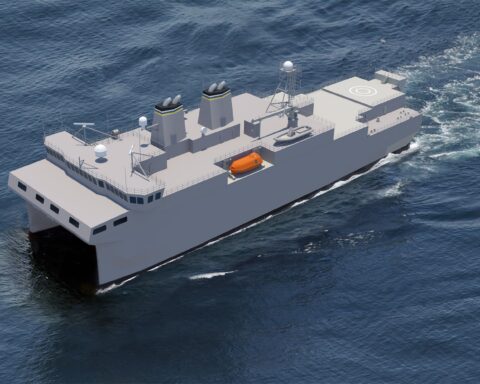The following is the Oct. 16, 2018 Congressional Research Service report, FY2019 National Defense Authorization Act: Selected Military Personnel Issues.
From the report
Each year, the National Defense Authorization Act (NDAA) provides authorization of appropriations for a range of Department of Defense (DOD) and national security programs and related activities. New or clarified defense policies, organizational reform, and directed reports to Congress are often included. For FY2019, the John S. McCain NDAA (H.R. 5515) contains several high-profile military personnel issues. Some are required annual authorizations, such as end-strengths; some are updates or modifications to existing programs; and some changes in response to problems identified in certain military personnel programs.
In this year’s NDAA, Congress authorized end-strengths identical to the Administration’s FY2019 budget proposal, which are slightly higher than in FY2018. The authorized active duty end-strength increased by 1% to 1,338,100. The authorized Selected Reserves end-strength increased by <1% to 824,700. With regards to military pay, a 2.6% increase will take effect in calendar year 2019. Congress considered the increase as requested by the Administration; however, an authorization was not required since 37 U.S.C. §1009 provides for automatic annual increases in basic pay that is indexed to increases in the Employment Cost Index.
Congress also directed modifications to several existing programs, including
- development of criteria for internment at Arlington National Cemetery, as well as a $30 million authorization to expand the cemetery;
- clarified military health system reform requirements outlined in 10 U.S.C. §1073c and revised the implementation date from October 1, 2018 to September 30, 2021;
- expanded eligibility for TRICARE beneficiaries to access the Federal Dental and Vision Insurance Program (FEDVIP);
- extended eligibility for commissary and morale, welfare, and recreation (MWR) privileges to certain veterans and veterans’ caregivers, as well as a $1.26 billion authorization for commissary operations;
- expanded availability of Military OneSource services, enhanced Transition Assistance Program (TAP) counseling requirements, and broadened educational opportunities for servicemembers desiring professional credentials; and
- corrected technical calculations for automatic annual adjustments to the Special Survivor Indemnity Allowance.
As part of the oversight process, additional provisions were incorporated to address selected congressional items of interest, such as
- added punitive articles on domestic violence in the Uniform Code of Military Justice and directed clarifying policy, support programs, and further study on services for victims of domestic violence and child abuse;
- stricter eligibility requirements for enlistees of the Military Accessions Vital to the National Interest (MAVNI) program;
- standardized processes for reporting and accountability, military justice and investigations, and victim services relating to military sexual assault and sexual harassment;
- increased transparency in Navy watchstander training programs and standards; and
- enhanced data-sharing between DOD and states to prevent opioid abuse or misuse.





